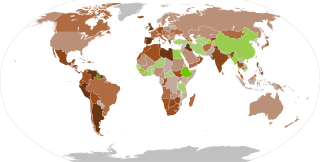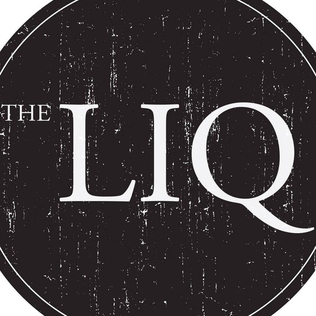Related Research Articles

Così, based in Boston, Massachusetts, is an American fast-casual restaurant chain that is known for its homemade flatbread. The name comes from the opera Così fan tutte, which was a favorite of the original owner. As of November 2020, the company operated 20 locations in New York, Washington D.C., Virginia, Pennsylvania, Massachusetts, Connecticut, Illinois, Indiana, and Ohio, down from 66 at the beginning of the year. The chain filed for Chapter 11 bankruptcy in February 2020.
Swiggy is an Indian online food ordering and delivery platform. Founded in 2014, Swiggy is headquartered in Bangalore and operates in more than 500 Indian cities as of September 2021. Besides food delivery, the platform also provides on-demand grocery deliveries under the name Instamart, and same-day package delivery service called Swiggy Genie.

The COVID-19 pandemic was confirmed to have reached the U.S. state of South Carolina in March 2020. On April 2, 2020, DHEC announced that the virus had spread to all 46 counties in the state. During the month of June the seven-day moving average of new COVID-19 cases in South Carolina increased nearly five-fold, from 293 on June 1 to 1,398 on June 30, and continued to increase during July and into August. As of August 2022 the South Carolina Department of Health and Environmental Control (DHEC) has confirmed 1,605,165 cases in the state and 18,192 deaths.

The Special Act for Prevention, Relief and Revitalization Measures for Severe Pneumonia with Novel Pathogens is a law of the Republic of China (Taiwan) regulating response and relief efforts related to the COVID-19 pandemic in Taiwan.

The Coronavirus Aid, Relief, and Economic Security Act, also known as the CARES Act, is a $2.2 trillion economic stimulus bill passed by the 116th U.S. Congress and signed into law by President Donald Trump on March 27, 2020, in response to the economic fallout of the COVID-19 pandemic in the United States. The spending primarily includes $300 billion in one-time cash payments to individual people who submit a tax return in America, $260 billion in increased unemployment benefits, the creation of the Paycheck Protection Program that provides forgivable loans to small businesses with an initial $350 billion in funding, $500 billion in loans for corporations, and $339.8 billion to state and local governments.

The COVID-19 pandemic affects the global food industry as governments close down restaurants and bars to slow the spread of the virus. Across the world, restaurants' daily traffic dropped precipitously compared to the same period in 2019. Closures of restaurants caused a ripple effect among related industries such as food production, liquor, wine, and beer production, food and beverage shipping, fishing, and farming.

The economic impact of the COVID-19 pandemic in India has been largely disruptive. India's growth in the fourth quarter of the fiscal year 2020 went down to 3.1% according to the Ministry of Statistics. The Chief Economic Adviser to the Government of India said that this drop is mainly due to the coronavirus pandemic effect on the Indian economy. Notably, India had also been witnessing a pre-pandemic slowdown, and according to the World Bank, the current pandemic has "magnified pre-existing risks to India's economic outlook".

The COVID-19 pandemic impacted the United States restaurant industry via government closures, resulting in layoffs of workers and loss of income for restaurants and owners and threatening the survival of independent restaurants as a category. Within a week after the first closures, industry groups representing independent restaurateurs were asking for immediate relief measures from local, state, and federal governments, saying that as many as 75 percent of independent restaurants could not survive closures of more than a few weeks. By late July, nearly 16,000 restaurants had permanently closed.

The Independent Restaurant Coalition is a US trade group formed during the COVID-19 pandemic by independent restaurateurs and chefs. During the pandemic the group lobbied local, state and federal governments for relief after their businesses were closed by government mandates to slow the spread of the virus. Their aim was to mitigate the impact of the closings on independent restaurants. Multiple prominent chefs and restaurateurs formed the leadership team.

The COVID-19 pandemic has greatly impacted the international and domestic economies. Thus, many organizations, private individuals, religious institutions and governments have created different charitable drives, concerts and other events to lessen the economic impact felt.

The economic impact of the COVID-19 pandemic in the United States has been widely disruptive, adversely affecting travel, financial markets, employment, shipping, and other industries. The impacts can be attributed not just to government intervention to contain the virus, but also to consumer and business behavior to reduce exposure to and spread of the virus.

The Government of Canada introduced multiple temporary social security and financial aid programs in response to the economic impacts of the COVID-19 pandemic in Canada. The initial CA$82-billion aid package was announced on March 18, 2020 by Justin Trudeau.

The federal government of the United States initially responded to the COVID-19 pandemic in the country with various declarations of emergency, some of which led to travel and entry restrictions and the formation of the White House Coronavirus Task Force. As the pandemic progressed in the U.S. and globally, the U.S. government began issuing recommendations regarding the response by state and local governments, as well as social distancing measures and workplace hazard controls. State governments play a primary role in adopting policies to address the pandemic. Following the closure of most businesses throughout a number of U.S. states, President Donald Trump announced the mobilization of the National Guard in the most affected areas.

The COVID-19 pandemic has had a deep impact on the Irish economy, leading it into a recession. Essential public health measures announced by the Irish Government to contain the spread of COVID-19 resulted in the largest monthly increase in unemployment in the history of the Republic of Ireland during March 2020. By 24 April, there were more than one million people in receipt of support interventions to the labour market, including those in receipt of the COVID-19 Pandemic Unemployment Payment and the COVID-19 Temporary Wage Subsidy Scheme. While there were job losses in all sectors, individuals working in tourism, hospitality, food and retail have seen the largest job losses.

The Consolidated Appropriations Act, 2021 is a $2.3 trillion spending bill that combines $900 billion in stimulus relief for the COVID-19 pandemic in the United States with a $1.4 trillion omnibus spending bill for the 2021 federal fiscal year and prevents a government shutdown. The bill is one of the largest spending measures ever enacted, surpassing the $2.2 trillion CARES Act, enacted in March 2020. The legislation is the first bill to address the pandemic since April 2020. According to the Senate Historical Office, at 5,593 pages, the legislation is the longest bill ever passed by Congress.

The Liquor Store was a bar, restaurant, and music venue in Portland, Oregon. Established in 2015, the business operated in a space previously occupied by the Blue Monk, a jazz club and restaurant, in southeast Portland's Sunnyside neighborhood. It was named the city's best new bar in Willamette Week's annual readers' poll in 2015 and 2016. The Liquor Store's upstairs had a bar and the owner's large vinyl record collection on display. The downstairs venue hosted live music and disc jockeys, playing a variety of genres, especially electronic music. The Liquor Store closed temporarily in March 2020 because of the COVID-19 pandemic, and two former employees filed a lawsuit claiming sexual harassment one month later. Sometimes confused for an actual liquor store, The Liquor Store closed permanently in September 2020.

The American Rescue Plan Act of 2021, also called the COVID-19 Stimulus Package or American Rescue Plan, is a US$1.9 trillion economic stimulus bill passed by the 117th United States Congress and signed into law by President Joe Biden on March 11, 2021, to speed up the country's recovery from the economic and health effects of the COVID-19 pandemic and the ongoing recession. First proposed on January 14, 2021, the package builds upon many of the measures in the CARES Act from March 2020 and in the Consolidated Appropriations Act, 2021, from December.

The Fields Bar and Grill is a sports bar and restaurant in Portland, Oregon's Pearl District, in the United States.

The Pink Door is a restaurant in Seattle's Pike Place Market, in the U.S. state of Washington.

Rose City Book Pub is a bookstore and bar in Portland, Oregon.
References
- ↑ "Restaurants, Bars, And Food Trucks Can Soon Apply For Federal Funds In New Pandemic Relief Program". Gothamist. April 19, 2021.
- ↑ "What's in the $29 billion Restaurant Revitalization Fund?". www.cbsnews.com. 17 March 2021.
- ↑ "Restaurants, bars, breweries can soon access $28 billion and are not required to repay it". masslive. April 19, 2021.